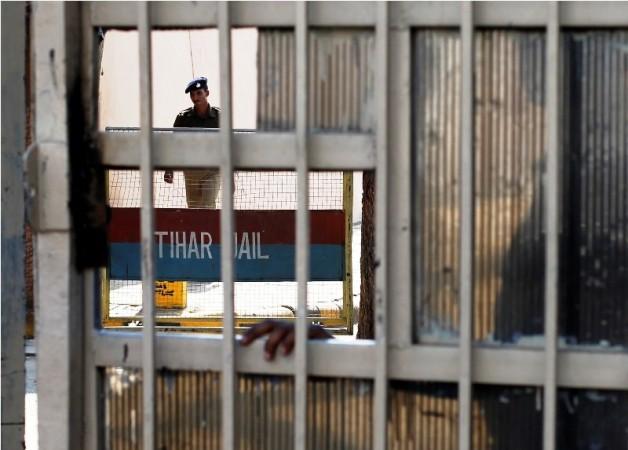
The alleged suicide of Ram Singh, the main accused in Delhi gang rape case, has triggered a debate on the issue of security in jails across the country and also prompted questions on the reason behind such suicides.
Tihar Jail officials, where Singh was imprisoned, said he was under 'suicide watch' as he showed signs of suicidal tendencies. It was revealed that Singh was bad tempered, argumentative and displayed troublesome behaviour. Neighbours in his village asserted that he was a heavy drinker and a menace to others.
Suicide in Indian jails is not uncommon. According to a study by National Institute of Mental Health and Neurosciences (NIMHANS), Bangalore, the rate of suicide among prisoners is exceedingly high compared to those of general population. Statistics provided by National Crime Records Bureau (NCRB) showed that more than 68 cases of jail suicides were reported throughout the country and eight were killed by inmates.
Indian jails are highly infamous of being overcrowded, its poor management ill-treatment of inmates. The official website of Tihar Jail states that around 12,000 prisoners are lodged in the jail, despite of the approved capacity of 6,250.
The study also revealed that issues such as mental torture, substance abuse, personality disorder, institutional factors like stress due to imprisonment and status of their trial also result in suicide among jail inmates.
A survey conducted by Delhi Psychiatry Journal last year showed that more than half the prisoners in India who committed suicide are aged between 25 and 35 years. The reason disclosed was that they did not have family or the families have distanced themselves from them.
First Post reported that it is a difficult task for authorities to keep check on prisoners as there are limited number of counsellors in central jails and no counsellors in sub-divisional jails across India.
"A way to prevent such acts is to engage with inmates personally. Something that correctional services officers or jail wardens who meet inmates everyday are better equipped to do than a visiting psychologists. They are trained to engage with the inmates, collect information about their families and hence keep a watch on them, but given how overcrowded our jails are, that too becomes a tough call," Ranveer Kumar, IG Prisons, West Bengal told First Post.
Kiran Bedi, former Tihar director general, questioned about the 'suicide watch,' under which Ram Singh was kept. "Did prison authorities provide a psychiatrist? Inquiry will tell how this prisoner was assessed. Every prisoner has a suicidal tendency and this tendency can come in anybody. So the guards gave to be alert all the time... How did this man give this watch a slip? I think we need to wait for the inquiry and lessons could be drawn from the report itself," she said.
The NIMHANS study stated 'the deplorable conditions in prisons only adds to the negativity and enhances the sense of hopelessness that contributes to individuals' choosing the biggest escape route by taking their own lives.'
Earlier this year, an undertrial committed suicide by hanging in Barnala jail. The 65-year-old man, identified as Ram Sarup, was accused of killing his son.
Also, Gurpreet Singh, a murder convict, attempted suicide in Hoshairpur district jail. However, he was saved by inmates.
In a similar case, a high-profile pimp attempted suicide by hanging herself with a dupatta in Tihar Jail. A source at the jail said that she was unhappy about being shifted to another ward fearing torture.





!['It's not Mumbai traffic, it's air traffic': Suriya apologises to Mumbai media after paparazzi yelled At Him for making them wait for hours [Watch]](https://data1.ibtimes.co.in/en/full/806234/its-not-mumbai-traffic-its-air-traffic-suriya-apologises-mumbai-media-after-paparazzi.jpg?w=220&h=138)
![Bigg Boss 16-fame Sreejita De and Michael Blohm-Pape exchange wedding vows in dreamy Bengali ceremony [Inside Pics]](https://data1.ibtimes.co.in/en/full/806233/bigg-boss-16-fame-sreejita-de-michael-blohm-pape-exchange-wedding-vows-dreamy-bengali-ceremony.jpg?w=220&h=138)







